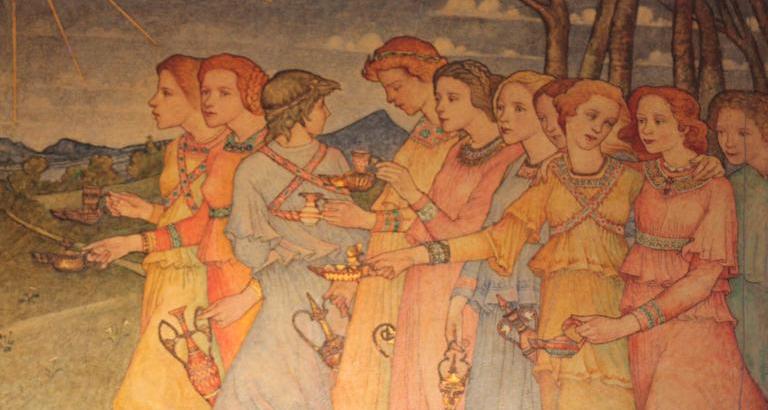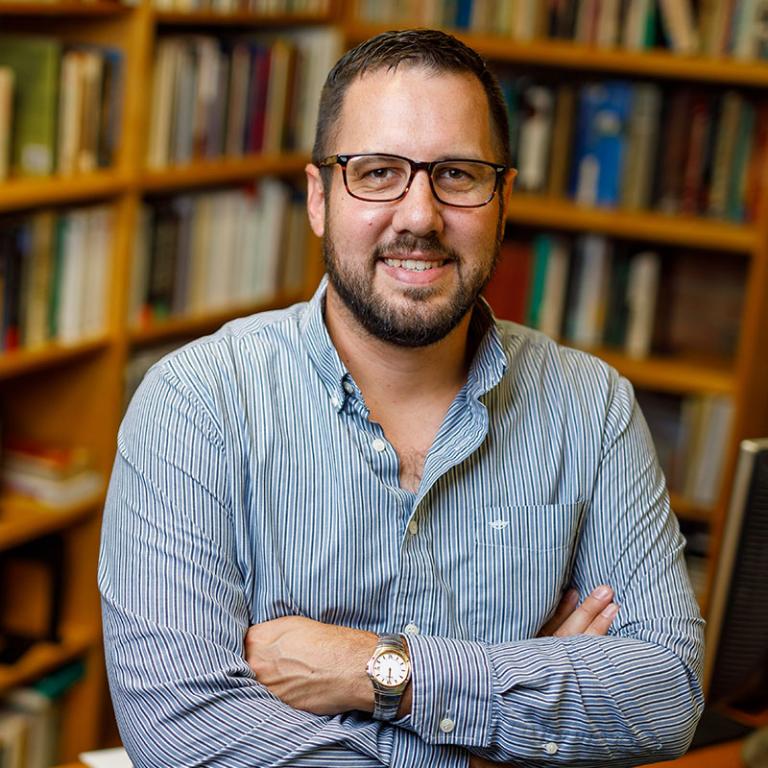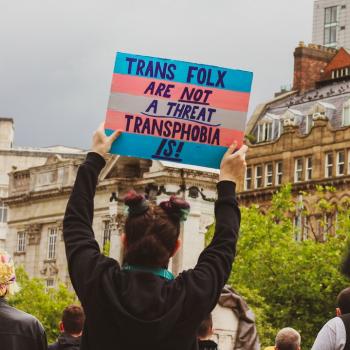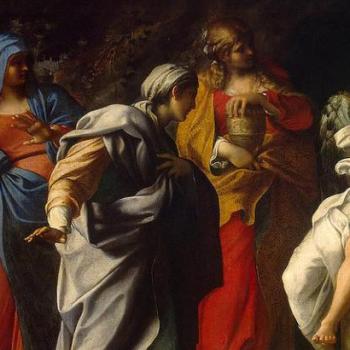I don’t know about you, but for me this last week felt like it went on forever. It reminded me of the Bill Murray movie Groundhog Day where TV weatherman Phil Connors gets stuck repeating the same day in Punxsutawney, Pennsylvania, over and over and over again. It kind of felt last week like the whole country was stuck repeating the same day in Pennsylvania.
Tuesday night was exciting watching returns come in and seeing states go blue or red. By Wednesday morning, it was pretty clear that everything hinged on Pennsylvania and maybe a few other states. So all day Steve Kornacki was at the big board explaining minute details about various counties in Pennsylvania, how many votes were yet to be counted, and what way those votes would likely lean.
Thursday felt pretty much the same as Wednesday. By Friday, it was starting to get hard to remember what day it was anymore. Saturday could have just as easily been Thursday. And then, all the sudden, at a random time on Saturday, enough votes came in to call the election. Immediately all the waiting was over, and a new president had been chosen.
The funny thing about this past week is that the winner of the election was already determined by the end of the day on Tuesday. Each day following was just waiting to find out what had been determined on election day. And yet, it kind of felt like there was still a decision to be made.
Theologians have a term for this time between the times. They call it the “already, but not yet.” The decision has already been made, but it hasn’t yet been fully realized or experienced. And so, even if you know what’s ultimately going to happen, it can often feel like it’s yet to be decided.

The parable of the 10 bridesmaids is all about this already-but-not-yet time. The bridesmaids know that the groom is going to arrive and the wedding party is going to happen, but they don’t know precisely when. And so some prepare for an extended wait so they’ll be ready for the groom’s arrival, while others don’t. And those who aren’t prepared miss out on the wedding feast altogether.
There is no denying that some of the details of the parable are disturbing, shocking even. Indeed, one of the purposes of Jesus’s parables is to shock its hearers into action. But with parables, the details themselves are rarely intended to be taken literally or allegorized. Instead, the story of the parable is intended to draw the listener’s attention to the main point.
In this instance, Jesus states the main point directly at the end: “So you, too, must keep watch! For you do not know the day or hour of my return” (Matthew 25:13). In other words, this parable is about learning what it means to live in the time between the times, in the already-but-not-yet.
Imagine if the election returns took not days but weeks or months or even years to be counted. While it might be OK to be glued to the TV for a few days, it would be irresponsible to live that way for much longer. At some point, we would need to get up and get back to the work we’ve been called to do.
With the return of Jesus, we’ve been waiting not just for days, weeks, months, or even years but going on two millennia. It would be easy to be lulled to sleep and not be prepared for Jesus’s return. But Jesus says, No, because you don’t know when I’ll return, it’s imperative to always keep watch.
As we seek to be faithful citizens to the kingdom in the societies in which we live, the question for us is this: What does it mean for us to keep watch today?
Here we can learn from our Jewish siblings, who often found themselves in the time between times. The prophet Amos writes that, as we wait for the return of the Lord, we can’t simply focus on worship without caring for the needs of society.
Amos writes of those who wish, “If only the day of the Lord were here!” that they “have no idea what [they] are wishing for” (Amos 5:18). Through Amos, the Lord tells the people that, if they aren’t living as kingdom citizens, then God doesn’t want to hear the sound of their worship:
I hate all your show and pretense—
the hypocrisy of your religious festivals and solemn assemblies.
I will not accept your burnt offerings and grain offerings.
I won’t even notice all your choice peace offerings.
Away with your noisy hymns of praise!
I will not listen to the music of your harps.
“Instead,” the Lord states, “I want to see a mighty flood of justice, an endless river of righteous living” (Amos 5:21–24).
The point here isn’t that we shouldn’t have worship services. Rather, it is that our worship must match our lives, and our lives must match our worship. Some Christians take the view that it doesn’t really matter what happens in our societies since Jesus is going to return to establish his kingdom anyway. But, according to this parable, that is the precisely wrong approach to take.
Certainly the church is not going to bring about the kingdom here on earth. This is why our daily prayer is “May your Kingdom come soon. May your will be done on earth, as it is in heaven” (Matthew 6:10). But as we pray and wait for that day, Jesus calls us to live our lives in light of the kingdom now.
Jesus says in the Sermon on the Mount that, just like the unwise bridesmaids, “Not everyone who calls out to me, ‘Lord! Lord!’ will enter the Kingdom of Heaven. Only those who actually do the will of my Father in heaven will enter” (Matthew 7:21).
Living in light of the kingdom now shows that we know who our king is. And, in turn, it allows our king to recognize us as citizens when he returns.
When the Jewish people were led into exile in Babylon, the Lord promised them through the prophet Jeremiah that their time in Babylon would not last forever.
“I will come and do for you all the good things I have promised, and I will bring you home again. For I know the plans I have for you,” says the Lord. “They are plans for good and not for disaster, to give you a future and a hope” (Jeremiah 29:10–11).
But in the time between the times, they weren’t called to hunker down in their own enclaves, singing worship songs and watching the news.
Instead, declares the Lord, the people were to called to do this:
Build homes, and plan to stay. Plant gardens, and eat the food they produce. Marry and have children. Then find spouses for them so that you may have many grandchildren. Multiply! Do not dwindle away! And work for the peace and prosperity of the city where I sent you into exile. Pray to the Lord for it, for its welfare will determine your welfare. (Jeremiah 29:5–7)
As we await the return of our king and the establishment of the kingdom, may we worship our king and pray for God’s kingdom to come. And may we also work for the peace and prosperity, the shalom, of the neighborhood to which we have been sent. For its shalom will determine our shalom. And seeking its shalom shows that we are faithful citizens, actively keeping watch for our king’s return.












